By Alana Snyder
Being the Grandchild
of a Holocaust Survivor
I can’t remember a time in my life when I didn’t know my grandma was a Holocaust survivor. This is a stark contrast from my mom, a second-generation survivor, who had never even heard the word “Holocaust” until age thirteen when she discovered the topic at the public library.
For me, a Pikesville native who attended Krieger Schechter Day School, my Jewish identity was nurtured in a safe space where I was able to learn and grow freely from a young age. While I always knew I was the grandchild of survivors, the weight of this fact didn’t really register with me until much later in life.
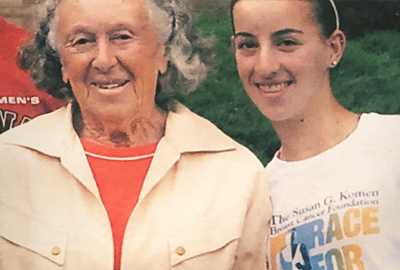
Growing up, visiting my grandma (two-and-a-half hours away) was the best. We had the same routine each time we went. The highlights included an enormous picnic lunch at Greenwood Furnace State Park and meandering through my grandma’s pristine house to look at all her framed family pictures.
It wasn’t until my late twenties that I started to piece together why my grandma did some of the things she did. She always had so much food for us. I assumed it was because that was just what grandmas did, not because she been starved during the Holocaust, weighing only 60 pounds when she was liberated from Ravensbruck concentration camp at 23 years old.
She always kept her house completely clear of any dust, dirt or clutter. I figured it was because she was just a neat person, not because she had spent several years of her life living in filth, being eaten alive by lice causing multiple recurrences of typhus fever.
She kept dozens of framed family photos on all surfaces of the house. I didn’t realize then that during the War, her extended family was whittled down from over 70 people to just four, or that their homes were simply gone one day when she and her fellow Czestechowa Jews were rounded up in the center of town.
Now, at 32 years old and a mom of two, my heart aches each time I think about my grandma preparing those delicious picnics for us, part of her subconsciously panicking that her food could be taken away at any time. Or when I think about how hard she must have worked to keep her house so clean, fearful of how dirt or germs could literally kill you.
And then my heart swells when I imagine how proud it must have made her to see those family pictures placed neatly all around her home, proving that not only did the Nazis not succeed, but also that her two children and seven grandchildren meant that there were now nine more Jews in the world.
I’m fortunate to have lived a very privileged life, especially when I think about my grandma as she sailed to America with only $2.00 in her pocket and more trauma than any one person should carry. As I’ve studied and connected more with my grandma’s story, I’ve learned a lot of new things about myself.
When I was younger, I experienced a lot of separation anxiety and feared the idea of being away from home. I could never understand why. I grew up in the most loving and stable home a child could ask for; my parents were always present when I needed them.
Why was I struggling? At 31 years old, I read a book by a fellow 3G (third-generation survivor or grandchild of a survivor) who wrote about intergenerational trauma and the way it is passed down through our genetics. He chronicled his debilitating separation anxiety and how it related to his grandfather’s Holocaust experience.
Ding! The light bulb went off. Of course I have a fear of being away from home—only two generations before, my grandma was ripped away from her home and never saw her house or hometown again. Of course I didn’t want to be far from my parents—my grandma watched her mother get sent away to the gas chambers (before miraculously being reunited with her three months later, a story for another time). Of course I didn’t want to go to sleep-away camp—what if the foreign place I ended up at wasn’t what I expected?
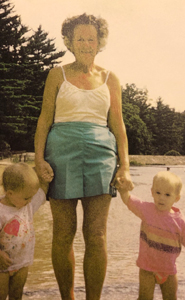
This is part of what it means to be a 3G, to be the grandchild of a survivor. We carry part of our grandparents’ stories with us. It’s literally written into our DNA. Realizing all of this felt so liberating. I finally felt like these parts of myself made sense, these struggles I had dealt with since I was in elementary and middle school.
After attending Krieger Schechter Day School through 8th grade, I ventured out of my sheltered, Jewish cocoon and attended Carver Center for Arts and Technology, Baltimore County Public Schools’ magnet school for the arts. It was clearly a change from what I was used to. I enjoyed the diversity of my new surroundings and was confident I had made the right choice.
It was the first time I had African American and Christian classmates, some of whom are still some of my closest friends today. I’ll never forget my 9th grade government class. It was my last 90-minute period on “B days,” and I can still picture the classroom. It was a small class with maybe 10 students who had opted for a more rigorous course. Our instructor had been teaching for many years, but like me, it was her first year at Carver.
Though the course was American Government, we one day found ourselves discussing Nazi Germany. Social studies was never my favorite subject, but my ears immediately perked up when I heard my teacher confidently tell the class that, ‘Jews are not a religion; they are a race” Wait, what? She said it again. ‘Jews are not a religion; they are a race.’
I raised my hand. Confrontation was not, and is still not, my forte, but in this case, I remember being eager to speak up. I asked what she meant, and she just kept repeating herself. I kept insisting that Judaism is in fact a religion, and that I knew this because I was Jewish.
At the end of the day, I went home and told my mom about the exchange. That night happened to be Back-to-School Night which my mom was already planning on attending, but now her anticipation skyrocketed. I remember my mom skipped the meetings with all my other teachers because she wanted to make sure she found my government classroom with plenty of time to spare.
After confronting her, my mom came home later that night and told me what my teacher’s excuse had been. She had told my mom, the daughter of two Holocaust survivors, that, ‘I guess I’ve been teaching about Nazi propaganda for so long that I actually started to believe it.
Let that sink in. This person, this ‘educator’, had been teaching false Nazi propaganda to students for who knows how long. Like I said, it was her first year at Carver, but she had been teaching for decades.
In the 3G community, we often use the term upstander. We already know what can happen if someone witnesses wrongdoing and does not speak up. Our grandparents, my grandma, suffered the consequences.
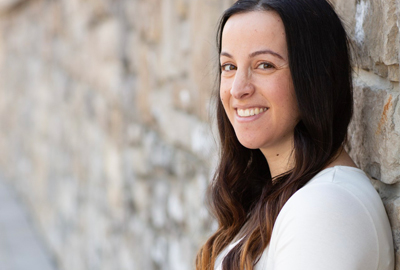
In 2022, and for the rest of my life, it is my mission and responsibility to raise my voice and say, ‘No, that’s not right,’ or, ‘Leave her alone,’ or whatever else is necessary to stand up for what I know is right.
When Whoopi Goldberg recently made antisemitic comments on The View, NPR’s national broadcast covered the story during their weekly news roundup. One of the show’s guests commented the following: ‘Whoopi Goldberg violated sort of the cardinal rule of public speaking which is don’t mention the Holocaust.’
I couldn’t believe my ears. What?! Can you imagine a world in which we didn’t speak about the Holocaust? It’s bad enough that 66% of millennials do not know what Auschwitz is, according to the Washington Post. I immediately sent an email, tweet, and Instagram message (all unacknowledged, unfortunately) to NPR expressing my disgust for the comment and explaining why it is imperative that we talk about the Holocaust to ensure that future generations are educated and able to ensure that “Never Again” is more than just a mantra.
This notion of educating future generations is what has driven me to engage in my work with the 3G and survivor communities. I joined the Baltimore Jewish Council’s Holocaust Remembrance Committee which has been exponentially more meaningful because my mom is a member as well. When I think of living links, and the ways in which we must keep survivor stories alive, I think of my mom and I doing this work together with the Baltimore Jewish Council.
I attended programs with 3GNY (New York) and 3GDC (Washington D.C.), and I completed 3GNY’s “WEDU” (We Educate) training to help me learn how to impactfully share my grandma’s story in schools. I even recently started 3GBMORE, a Baltimore-based group for grandchildren of survivors to come together to honor our grandparents and support one another.
Russia’s current war on Ukraine proves that there is far more work to be done. I’ll never forget turning on the news when the invasion began, hearing civilian accounts of being awoken overnight by airstrikes. ‘Just like Grandma,’ I thought. How can this be? In 2022? Like I said, we have a long way to go.
Last year I shared my grandma’s story with a world history class at a Howard County high school. After the presentation when the students were gone, the teacher thanked me again for coming. ‘I didn’t want to tell you this before you shared,’ he said, ‘but I have a few students in my class who are Holocaust deniers. I wanted them to hear what your grandmother went through.’
I was stunned. But that’s probably my privilege seeping in once again. I’m privileged to be surrounded by people who are educated and honest about the world and who have taught me right from wrong. The same teacher recently reached out to me about coming back this spring to speak with this year’s students. I hope that means I’m making a difference.
I know my grandma would be proud.
For more information about 3GBMORE, reach out to 3GBMORE@gmail.com.
Subscribe to our newsletter
The Associated is a home for everyone in the Baltimore Jewish community. We offer several email lists to help people find a community, engage with their peers and support Jewish journeys around the world.
Join Our Mailing ListAdd Impact to Your Inbox
Sign up for our newsletter
Subscribe to our newsletter
The Associated is a home for everyone in the Baltimore Jewish community. We offer several email lists to help people find a community, engage with their peers and support Jewish journeys around the world.
Join Our Mailing List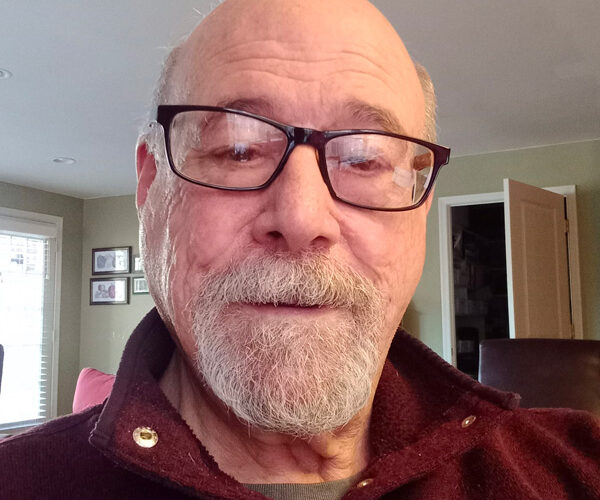

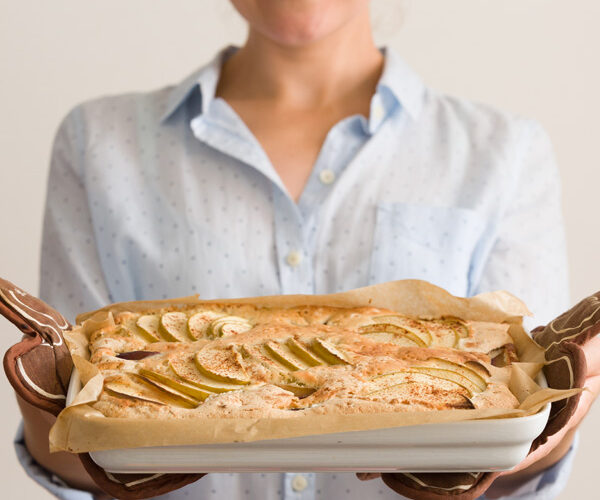
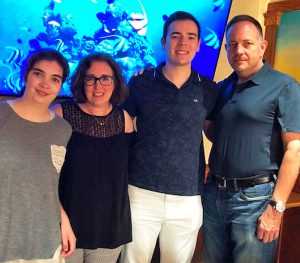
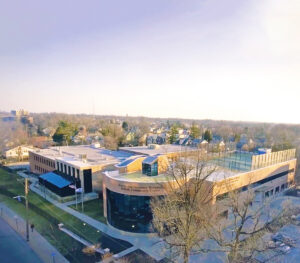
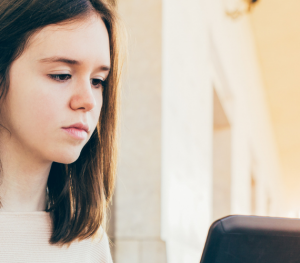
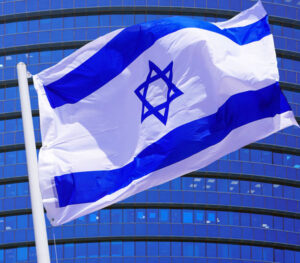
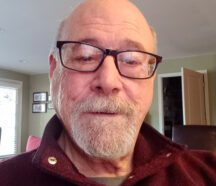
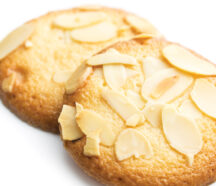
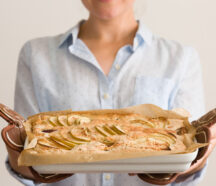
 Please Wait while we loading your video.
Please Wait while we loading your video.